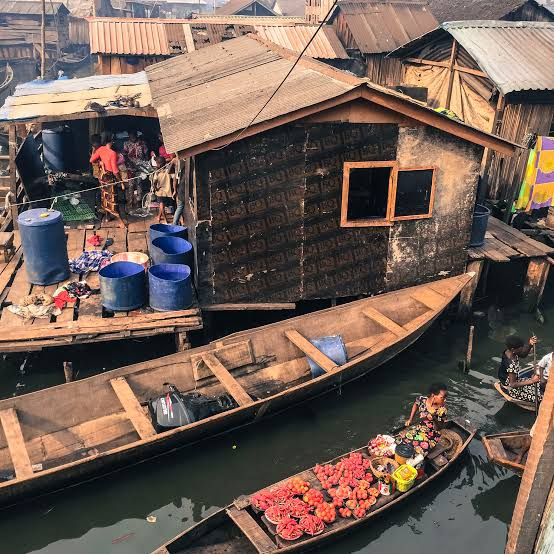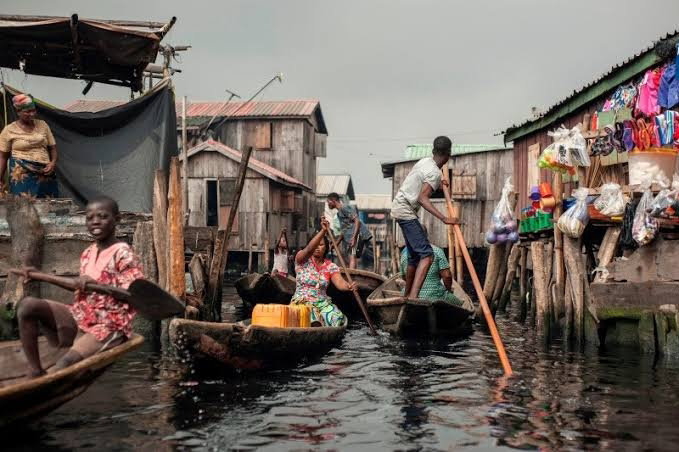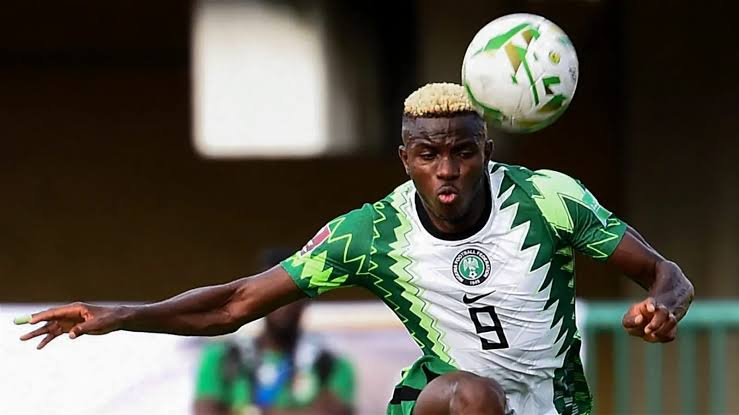Makoko Slum, Lagos State, Nigeria... Read More.
Makoko is located in Lagos, Nigeria, on the shore of Lagos Lagoon. It's thought to be one of the largest slums in Africa, with over 100,000 people living in the area. The houses in Makoko are built on stilts above the water, making it a "floating village." The community is primarily made up of the Yoruba ethnic group, but people from other parts of Nigeria and even other countries also live there.
Makoko is thought to have been founded in the 18th century by the Yoruba people, who migrated from the hinterland to the coast of Lagos. The name "Makoko" is derived from the Yoruba word "Okomoko," which means "fish." For centuries, Makoko was known as a fishing village, with the residents living off the bounty of the sea. In the 1960s, a government policy encouraged people from rural areas to move to cities like Lagos, leading to rapid urbanization and the growth of Makoko.
Over time, the floating village of Makoko has faced a number of challenges, including flooding, sanitation issues, and poverty. In 2012, the Lagos State government announced plans to demolish Makoko and relocate the residents. However, this plan was met with resistance from the community, and it has not been carried out. In recent years, Makoko has become a tourist destination, and efforts are being made to improve the living conditions of the residents.
One of the biggest challenges facing Makoko is the lack of clean water and sanitation. There is no central water supply, and many people rely on polluted water from the lagoon for drinking, cooking, and bathing. This has led to a high incidence of waterborne diseases, such as diarrhea and typhoid. Another issue is the lack of proper waste disposal, leading to piles of garbage in the streets and in the lagoon. These conditions have contributed to a high rate of illness and disease in Makoko.
In addition to the challenges of clean water and sanitation, the people of Makoko also face the challenge of poverty. Many people live in cramped conditions, with up to 10 people sharing a small house built on stilts. Jobs are scarce, and most people make a living through fishing or trading. There are few opportunities for education, and many children do not attend school. Those who do attend school often have to walk long distances or cross dangerous waterways.
Despite the challenges they face, the people of Makoko have shown resilience and creativity. They have developed a unique culture and way of life that is adapted to the environment. The people are known for their fishing skills, their artistry, and their music. Many people are also skilled at making canoes, which are used for fishing and transportation. In addition, the people of Makoko have a strong sense of community, and they support each other through difficult times.
One of the most important traditions in Makoko is the role of the "Baale," or chief. The Baale is the leader of the community, and he is responsible for settling disputes and representing the community to the outside world. In addition, the Baale organizes community events and ensures that traditions are preserved. One of the most important traditions is the annual "Igbo Ojude" festival, which celebrates the end of the rainy season and the beginning of the fishing season.
During the Igbo Ojude festival, the Baale leads a procession of boats through the lagoon, and the people of Makoko come together to sing, dance, and celebrate. The festival is also a time for people to express their gratitude to the sea for providing them with fish and other resources. The Baale is an important figure in Makoko, and the Igbo Ojude festival is a time of joy and celebration. In addition to the festival, the people of Makoko also have their own unique language, called "Makoko Creole."
Makoko Creole is a mixture of Yoruba, French, and English, and it is spoken by the people of Makoko. The language has its own unique grammar and vocabulary, and it is used in everyday life. Many people also speak Yoruba, the language of the Yoruba people of Nigeria. The ability to speak Makoko Creole is an important part of the identity of the people of Makoko.
In conclusion, the people of Makoko have faced many challenges over the years, but they have also developed a unique culture and language that is closely tied to their environment. The role of the Baale is an important part of the community, and the Igbo Ojude festival is a time for celebration and gratitude. The people of Makoko have shown great resilience and creativity in adapting to their circumstances, and their culture is an example of the diversity and richness of life in Nigeria.
Thank you for learning about the history and culture of Makoko.






Comments
Post a Comment